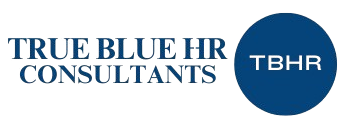
In a world where organizations are constantly evolving, workplace culture has emerged as a key determinant of success. A positive culture enhances employee satisfaction, fosters collaboration, and ultimately drives productivity. Conversely, a misaligned or toxic culture can lead to disengagement, high turnover, and stagnation.
With these stakes in mind, the role of HR consulting in shaping and transforming workplace culture has become more critical than ever. HR consultants bring valuable insights and expertise to help organizations cultivate environments where employees thrive and align with broader organizational goals.
Understanding Workplace Culture
Workplace culture refers to the shared values, practices, and behaviours that characterize how work is done in an organization. It influences every aspect of an employee’s experience, from daily interactions to how decisions are made and communicated.
According to research from Deloitte, 94% of executives and 88% of employees believe a distinct workplace culture is essential to an organization’s success. However, defining and maintaining such a culture requires intentionality and continuous effort. This is where HR consulting can play an influential role, helping organizations to identify their cultural strengths and address challenges effectively.
How HR Consulting Shapes Workplace Culture
- Assessing the Current Culture
Before implementing any changes, it is crucial to understand the existing workplace culture. Comprehensive assessments can uncover discrepancies between the organization’s stated values and its day-to-day realities.
Through tools such as employee surveys, focus groups, and data analysis, consultants help organizations pinpoint areas where cultural improvements are needed. This diagnostic approach sets the foundation for strategic interventions, enabling organizations to move forward with clarity.
- Bridging Culture and Organizational Goals
A successful workplace culture is one that aligns with the organization’s mission and goals. For example, a company prioritizing innovation needs a culture that encourages creativity, risk-taking, and cross-functional collaboration.
HR consultants work collaboratively with leadership teams to refine cultural elements and embed them into every layer of the organization. This might involve reviewing policies, restructuring workflows, or creating programs that celebrate behaviours aligned with organizational priorities.
- Empowering Leadership
Leadership is one of the most significant drivers of workplace culture. Studies from Gallup indicate that managers account for at least 70% of the variance in employee engagement. Therefore, investing in leadership development is a cornerstone of cultural transformation.
Consultants often act as partners in this process, helping organizations provide tailored training and coaching for leaders. Whether through workshops, individual coaching, or feedback mechanisms, these interventions equip leaders to model desired behaviours and inspire their teams effectively.
- Fostering Inclusion and Belonging
In today’s diverse workplace, fostering a sense of inclusion and belonging is critical. Employees who feel valued and respected are more likely to engage, collaborate, and innovate.
Implementing inclusive practices may include reviewing recruitment and promotion strategies, establishing employee resource groups, or providing training on unconscious bias. These efforts not only enhance workplace culture but also contribute to organizational resilience and adaptability.
- Enhancing Employee Engagement
Employee engagement is an essential component of a thriving workplace culture. Engaged employees are more productive, committed, and likely to advocate for their organization. However, maintaining high engagement requires continuous effort.
Consultants assist organizations in designing programs and initiatives that address employee needs, such as recognition systems, career development opportunities, and wellness programs. A targeted approach ensures that employees feel connected to their work and aligned with the company’s purpose.
- Managing Cultural Change
Workplace culture is not static; it evolves with internal and external factors, such as organizational growth, technological advancements, or market shifts. Navigating these changes effectively requires thoughtful planning and communication.
HR consultants are skilled at guiding organizations through cultural transitions. By facilitating transparent dialogue, addressing employee concerns, and offering tailored solutions, they help ensure that changes are embraced and sustained over time.
The Ripple Effects of Positive Workplace Culture
A strong workplace culture has far-reaching benefits:
- Enhanced Employee Satisfaction: Employees are more motivated and less likely to leave organizations where they feel supported and valued.
- Improved Recruitment: A compelling culture attracts top talent, as candidates increasingly seek workplaces that align with their values.
- Increased Productivity: Engaged and empowered employees are more innovative and collaborative.
- Stronger Brand Reputation: Companies known for positive cultures often enjoy higher customer loyalty and stronger community relationships.
According to the MIT Sloan Management Review, companies with strong cultures experience up to 30% higher innovation rates and 40% lower turnover compared to their peers.
Key Considerations for Organizations
For businesses embarking on cultural transformation, there are several considerations:
- Start at the Top: Leadership commitment is vital. Leaders must embody the values they wish to see across the organization.
- Listen to Employees: Regular feedback and open communication channels help identify cultural gaps and build trust.
- Measure Progress: Establish clear metrics to evaluate the impact of cultural initiatives and adjust as needed.
- Stay Adaptable: As the workforce and market evolve, so must the culture. Flexibility is essential for long-term success.
Collaborating with HR Consultants for Cultural Growth
HR consultants bring an unbiased perspective and a wealth of experience to help organizations navigate the complexities of cultural transformation. By offering insights into best practices and tailoring solutions to meet unique needs, they ensure that cultural initiatives are both impactful and sustainable.
Whether addressing leadership dynamics, fostering inclusion, or improving engagement, consultants act as strategic partners, supporting organizations in building cultures that inspire and thrive. For businesses committed to creating lasting change, this partnership can be a game-changer.
Conclusion
Workplace culture is more than a buzzword; it is a strategic imperative that influences every aspect of an organization’s success. While the journey to shaping and sustaining a positive culture can be complex, the role of HR consulting in this process is invaluable.
By leveraging the expertise of HR consultants, organizations can uncover opportunities, implement meaningful changes, and create environments where employees flourish. In doing so, they not only enhance their operational effectiveness but also build a workplace that stands out in a competitive landscape.
For businesses ready to embark on this journey, the guidance of a skilled HR consultant can make all the difference. After all, a thriving workplace culture begins with intentional actions—and the right partnership to guide them. Transform your workplace culture with us—because success begins with people.
Post a comment Cancel reply
Related Posts
Why Have a Team If You’re Going to Micromanage?
A team exists to share the workload and make the most of everyone’s unique strengths.…
Future of Work: How HR Can Adapt to the Rise of Remote and Hybrid Models
The world of work has changed dramatically in recent years, with the rise of remote…
The Impact of AI on HR: Are We Ready for the Change?
Artificial Intelligence (AI) is transforming industries across the globe, and Human Resources (HR) is no…
5 Key Strategies to Attract and Retain Top Talent in 2024
The talent market is becoming increasingly competitive, especially as businesses evolve to meet the challenges…









